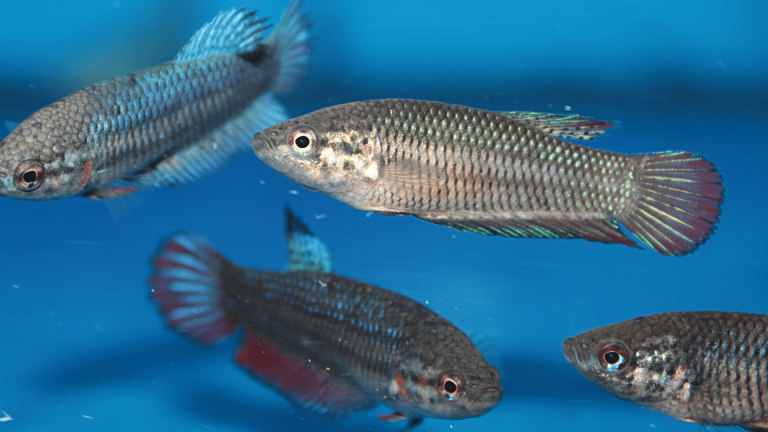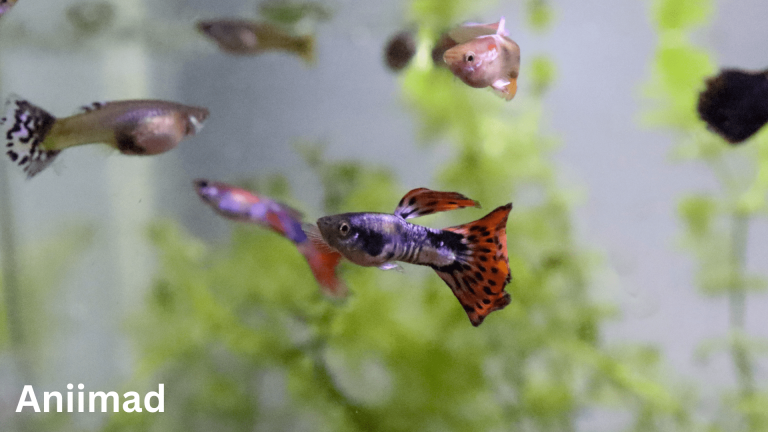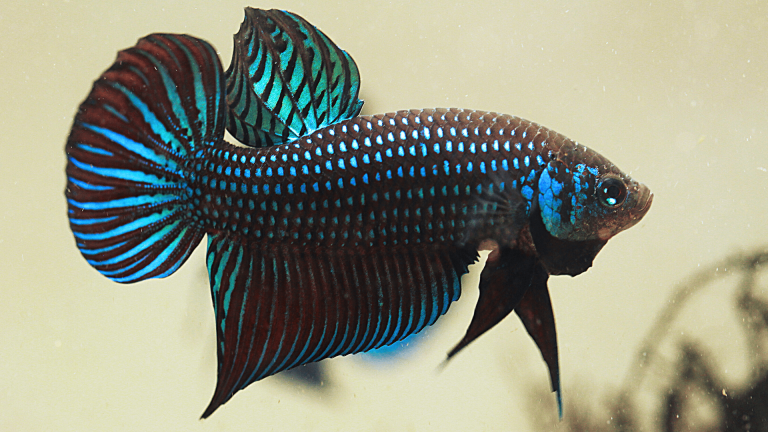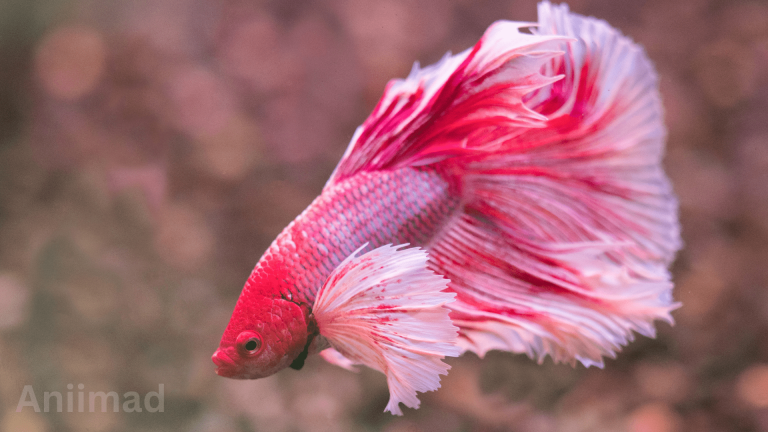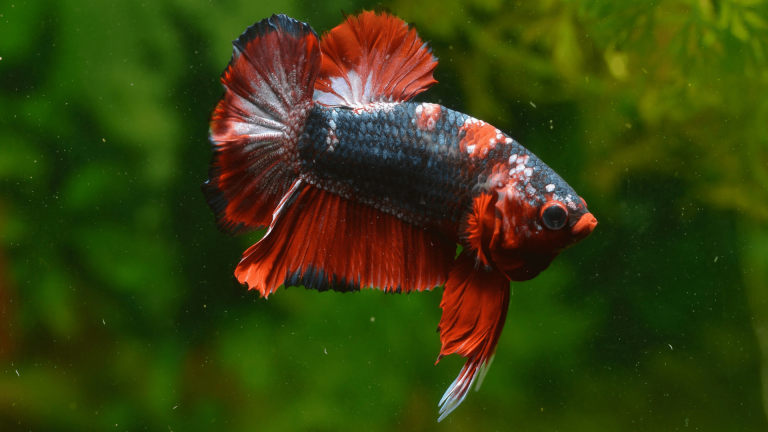Do Betta Fish Need a Filter? Exploring the Benefits and Considerations
Discover why Betta fish need a filter for a healthy aquatic environment. Learn about the benefits, requirements, and FAQs about keeping Betta fish with proper filtration.
Betta fish, also known as Siamese fighting fish, are popular choices among aquarists for their vibrant colors and unique personalities. As a responsible fish owner, it’s important to provide the best possible environment for your pet. One common question that arises is whether betta fish need a filter in their tank. In this article, we’ll delve into the benefits of using a filter in a betta fish tank and guide making the right choice for your aquatic companion.
Tips for Maintaining a Filter-Free Betta Tank
Regular Water Changes
If you choose to keep a betta fish without a filter, prepare to perform partial water changes more frequently. Aim for at least a 25-30% water change every week to help maintain water quality.
Live Plants
Adding live aquatic plants to your tank can help improve water quality by absorbing nitrates and providing oxygen through photosynthesis. Plants also create a more natural and aesthetically pleasing environment for your betta.
Avoid Overfeeding
Since there won’t be a filter to remove excess food, be cautious not to overfeed your betta. Uneaten food can contribute to water pollution.
Monitor Water Parameters
Regularly test the water parameters, including ammonia, nitrite, nitrate, and pH levels, to ensure they remain within safe ranges for your betta.
While betta fish can technically survive without a filter, providing them with a properly filtered tank offers numerous benefits for their health and well-being. Filters help maintain water quality, reduce the frequency of water changes, and create a more stable and comfortable environment for your betta. If you choose to keep a filter-free tank, prepare to invest extra time and effort into maintaining optimal water conditions through frequent water changes and other strategies.
How Long Can Betta Fish Go Without Filter?

Betta fish can technically survive for some time without a filter, but the duration largely depends on various factors, including the size of the tank, the number of fish, water quality, and overall care provided. Bettas have a higher tolerance for less-than-ideal conditions compared to some other fish species, but prolonged exposure to poor water quality can lead to stress, compromised immune systems, and increased susceptibility to diseases.
In a tank without a filter, the water quality can deteriorate more quickly due to the lack of filtration and waste buildup.
Here are some general guidelines to consider
Smaller Tanks
In a smaller tank, such as a bowl or a small vase, the water quality can deteriorate rapidly without a filter. Bettas in such setups may require more frequent water changes, possibly every 1-2 days, to maintain acceptable water conditions.
Larger Tanks
In larger tanks, bettas may be able to go a bit longer without a filter, but you should still aim to perform water changes at least once a week to prevent waste accumulation and maintain water quality.
Live Plants
If your tank without a filter contains live aquatic plants, they can help absorb some of the waste produced by the fish, thus extending the time between water changes.
Tank Maturity
An established tank that has developed a healthy population of beneficial bacteria can help stabilize water conditions to some extent. However, even in a mature tank, water changes are still necessary to maintain water quality.
It’s important to closely monitor your betta fish and the tank’s water quality if you choose to keep them without a filter. Signs of stress or poor water quality include lethargy, loss of appetite, fin deterioration, and a cloudy or foul-smelling tank. Regular water testing using appropriate kits can help you gauge the ammonia, nitrite, nitrate, and pH levels, allowing you to determine when water changes are needed.
While bettas can survive temporarily without a filter, providing them with a filtered tank is generally recommended for their long-term health and well-being. Filters help maintain a stable and healthy aquatic environment, reduce the frequency of water changes, and contribute to a better quality of life for your betta fish.
Can Betta Fish Live Without Oxygen Filter?

Yes, betta fish can live without an oxygen filter, but it’s important to understand the conditions and considerations involved. Bettas have a unique adaptation called the labyrinth organ that allows them to breathe atmospheric air directly from the water’s surface. This ability enables them to survive in oxygen-depleted environments such as shallow puddles, stagnant water, and rice paddies.
While bettas can tolerate low oxygen levels for short periods, providing them with proper oxygenation is crucial for their overall health and well-being. Here are some key points to consider.
Labyrinth Organ
The labyrinth organ allows bettas to breathe air, but they still require adequate oxygen exchange at the water’s surface. Stagnant or poorly oxygenated water can lead to stress and health problems.
Water Movement
A filter can help create water movement and surface agitation, promoting oxygen exchange. Without a filter, you can use other methods to agitate the water’s surface, such as an air stone, a gentle water pump, or careful positioning of decorations to create ripples.
Tank Size
The size of the tank plays a significant role in oxygen levels. In a larger tank, the oxygen concentration can deplete more slowly, but it’s still important to ensure proper surface agitation.
Aquatic Plants
Live plants can help increase oxygen levels through photosynthesis. They absorb carbon dioxide and release oxygen, contributing to a more oxygen-rich environment.
Temperature
Higher water temperatures can decrease the dissolved oxygen content of the water. Ensure that your tank is maintained at an appropriate temperature range for bettas (around 78-80°F or 25-27°C).
Water Changes
Regular partial water changes are important to refresh the oxygen content and remove accumulated waste. Aim for a water change of 25-30% weekly or as needed based on water quality.
While betta fish can survive without an oxygen filter, providing them with a filter is generally recommended for several reasons:
- Filters improve water circulation and oxygenation, creating a healthier and more stable environment.
- Filters help remove waste and maintain water quality, reducing the frequency of manual water changes.
- Filters provide biological filtration, helping to break down harmful ammonia and nitrite compounds.
Ultimately, if you choose not to use a filter, it’s essential to closely monitor water quality, oxygen levels, and your betta’s behavior. Regular maintenance, proper tank setup, and attention to your betta’s needs contribute to their long-term health and well-being.
Does Betta Fish Need A pump And Filter?

Betta fish can thrive in a tank without a pump and filter, but providing them with these components can greatly improve their overall health and well-being. Let’s explore the roles of pumps and filters in a betta fish tank:
Pump
A pump, also known as an air pump, is commonly used to create water movement and surface agitation in an aquarium. While bettas have a labyrinth organ that allows them to breathe atmospheric air, they still need access to oxygen from the water’s surface. A pump can help increase oxygen exchange at the water’s surface, ensuring that your betta has an adequate supply of oxygen.
Filter
A filter serves several important functions in an aquarium:
Mechanical Filtration
Filters remove debris, uneaten food, and waste from the water, helping to maintain a cleaner and clearer environment.
Biological Filtration
Beneficial bacteria colonize the filter media and help break down toxic ammonia and nitrite compounds produced by fish waste. This biological filtration is crucial for maintaining water quality and a stable environment.
Chemical Filtration
Some filters include chemical media that can help remove impurities, odors, and discoloration from the water.
Benefits of Using a Pump and Filter for Bettas
Improved Oxygenation
Both a pump and a filter can contribute to better oxygenation of the water, ensuring your betta has access to sufficient oxygen for its respiratory needs.
Water Circulation
Proper water movement and circulation help distribute heat and nutrients evenly throughout the tank, creating a more stable and comfortable environment.
Reduced Maintenance
Filters help maintain water quality by removing waste and toxins, reducing the frequency of manual water changes.
Stress Reduction
Bettas can be sensitive to changes in water quality. A filter can help stabilize the water parameters and create a more stress-free environment for your betta.
Promotion of Beneficial Bacteria
Filters establish and support a colony of beneficial bacteria that play a vital role in breaking down harmful substances, promoting a healthier environment for your betta.
While it is possible for betta fish to live without a pump and filter, providing these components can significantly enhance their quality of life and overall health. A pump helps ensure proper oxygenation and a filter assists in maintaining water quality and stability. If you choose to forgo a pump and filter, prepare for more frequent water changes and closely monitor your betta’s well-being to ensure they are thriving in their environment.
Setting Up the Ideal Filtration System

When it comes to creating the perfect environment for your Betta fish, setting up an ideal filtration system is paramount. Following these steps will ensure that your Betta fish enjoy a clean and healthy habitat:
Selecting the Right Filter Type
The first step in setting up an effective filtration system is choosing the right filter type for your Betta fish tank. There are several options available, including sponge filters, hang-on-back filters, and canister filters. It’s important to opt for a filter that suits the size of your tank and provides both mechanical and biological filtration.
Cycling the Aquarium
Before introducing your Betta fish to their new home, it’s crucial to cycle the aquarium. This process involves establishing beneficial bacteria that help break down waste in the tank. Proper cycling prevents sudden spikes in ammonia levels and creates a stable environment for your Betta fish to thrive in.
Monitoring Water Parameters
Regularly monitoring water parameters is key to maintaining a healthy aquarium. Test the water for ammonia, nitrites, nitrates, pH, and temperature on a regular basis. A well-maintained filter will aid in keeping these parameters within the appropriate range for your Betta fish.
Cleaning and Maintaining the Filter
Filters require periodic maintenance to ensure their efficiency. Follow the manufacturer’s instructions for cleaning and replacing filter media. Regular maintenance prevents clogs and ensures that the filtration system functions optimally.
By following these steps, you can set up an ideal filtration system that provides a comfortable and safe habitat for your Betta fish. This will contribute to their overall health and well-being, allowing them to thrive in their aquatic environment.
Frequently Asked Questions (FAQs) About Do Betta Fish Need a Filter

Do betta fish need a filter in their tank?
While betta fish can survive without a filter, having a filter is highly recommended. Filters help maintain water quality, provide oxygenation, and remove waste, contributing to a healthier and more stable environment for bettas.
Can betta fish live without a filter?
Yes, betta fish can survive without a filter, but it requires more frequent water changes and careful monitoring of water quality. Filters help make maintenance easier and create a better living environment for bettas.
How long can betta fish go without a filter?
The duration betta fish can go without a filter depends on factors like tank size, water quality, and care. In smaller tanks, water quality may deteriorate faster, requiring more frequent water changes, while larger tanks can tolerate longer periods without a filter.
Can bettas live in bowls without filters?
Bettas can live in bowls without filters, but bowls are generally not the best environments for them. Bowls lack proper space, oxygenation, and filtration, leading to higher maintenance demands and potential stress for the fish.
Do bettas need an air pump for oxygen?
Bettas have a labyrinth organ that allows them to breathe atmospheric air, so they can survive without an air pump. However, an air pump can enhance oxygen exchange at the water’s surface and contribute to better oxygenation.
What are the benefits of using a filter for betta fish?
Filters help maintain water quality by removing waste and toxins, providing oxygenation through water movement, and supporting beneficial bacteria that break down harmful compounds. They create a stable and healthier environment for bettas.
What types of filters are suitable for betta fish tanks?
Sponge filters, hang-on-back (HOB) filters, and internal filters commonly use for betta fish tanks. Sponge filters are gentle and provide mechanical and biological filtration, while HOB and internal filters offer more comprehensive filtration options.
How often should I clean or change the filter media?
Cleaning or changing filter media should be done based on the manufacturer’s recommendations. Generally, rinse or replace filter media when it becomes visibly dirty to maintain effective filtration.
Can live plants replace the need for a filter in a betta tank?
Live plants can help improve water quality by absorbing nitrates and providing oxygen through photosynthesis. While they contribute to a healthier environment, they might not entirely replace the need for a filter.
What signs indicate that my betta fish tank needs better filtration?
Cloudy water, foul odors, visible waste buildup, and stressed or lethargic behavior in your betta are signs that your tank might benefit from better filtration and water quality management.
Conclusion
Providing a thriving environment for your Betta fish involves more than just a beautifully decorated tank. Adequate filtration is a cornerstone of their well-being, ensuring clean water, proper oxygenation, and a stress-free habitat. By understanding why Betta fish need a filter and the benefits it offers, you’ll be equipped to create a captivating and healthy aquatic home for these captivating creatures.

